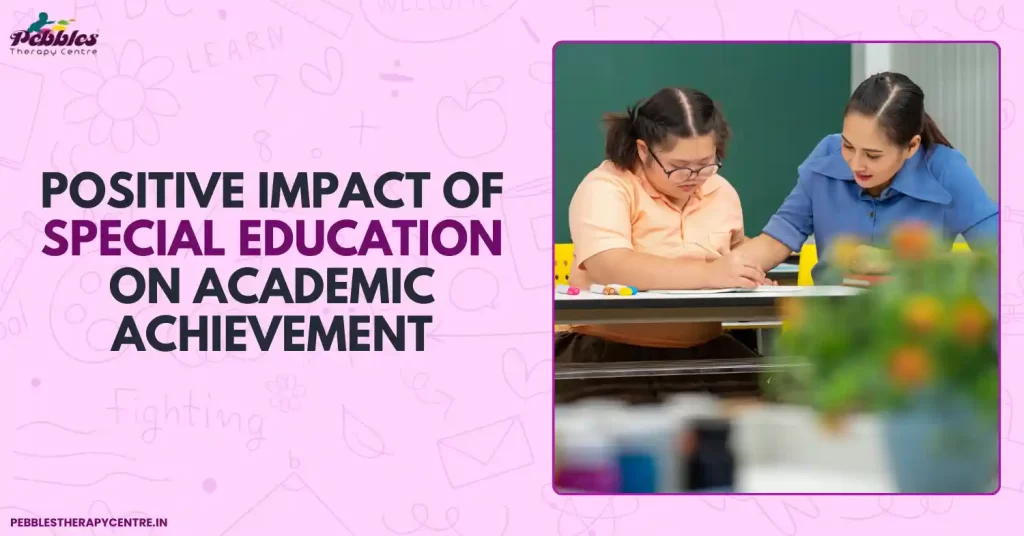Positive Impact of Special Education on Academic Achievement
The special education, therefore, allows for quality learning opportunities for all children regardless of their challenges. Diverse academic needs are catered for in order to help students realize academic excellence, social skillsdevelopment, and emotional growth. This blogs gives an insight on the positive impact of special education and why it is a valued part of the basic education program, offering numerous benefits towards the development of children as a whole.
What Is Special Education & Why Does It Matter?
Special education refers to specially designed instructional programs that are specifically tailored to address the needs of students with disabilities or learning challenges. Unlike conventional education, it involves assistive technology and individually tailored plans and focuses on skill-building.
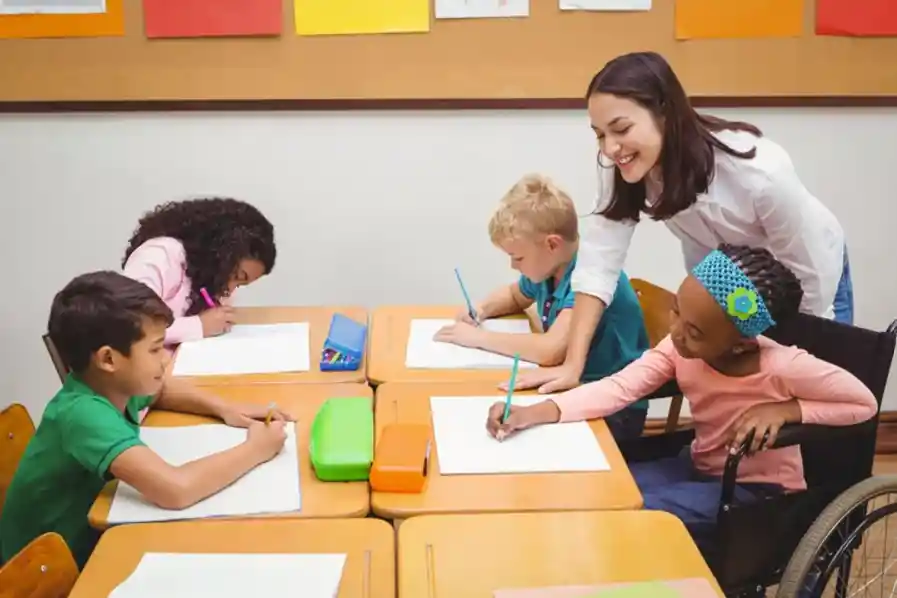
Why Is It Important?
- Inclusive Learning: The ability to learn students with disabilities with other students.
- Skill Building: Skills are developed, such as communication, problem-solving, and task management.
- Better Grades: Improve academic achievement of the students along with their self-confidence.
Early intervention in special education is effective especially in early childhood special education, which is laying foundation.
Who Needs Special Education?

Special education is absolutely necessary for those who find it difficult to learn in a normal environment. But then, who are special children? Simply put, students with special needs are students who have specific learning disabilities or disorders that require extra support to enable them reach their full potential. Learning disabilities may include the following:
- Learning Disabilities – Dyslexia, dysgraphia, and other processing disorders
- Developmental Disorders – Autism Spectrum Disorder (ASD) and intellectual disability.
- Behavioral and Emotional Disorders – The classification may be made as ADHD, anxiety, or depression.
- Physical Disabilities – Inability to walk, hearing and sight problems.
Students receiving special education services in Chennai are offered tailored teaching procedures and materials which are unique for them and represent a solution to their special needs.
Types of Children with Special Educational Needs
Children with special educational needs are a diverse group requiring tailored approaches. These students benefit from specialized teaching methods to meet their unique challenges.
Categories of Special Educational Needs:
- Cognitive Disabilities:
- Example: Down syndrome or dyslexia.
- Requires adaptive teaching and focus on basic skills.
- Developmental Delays:
- Example: Autism Spectrum Disorder (ASD).
- Needs therapeutic interventions alongside academics.
- Behavioral Disorders:
- Example: ADHD or oppositional defiant disorder.
- Managed with behavioral therapy and structured classroom routines.
- Sensory Impairments:
- Example: Blindness or hearing loss.
- Supported with assistive technology like Braille devices and hearing aids.
Understanding the types of children with special educational needs is essential to developing effective learning plans that nurture their growth and shape them for regular schooling.
This understanding of differences, the education system encourages inclusive education and yields benefits to all students, enhancing skills and boosting confidence.
How Does Special Education Help Students Excel Academically?
Special education allows every child to achieve academic success despite the various challenges that most of them face. The individual with a disability becomes better at dealing with obstacles as the child gains to discover their potential through tailored strategies.
How Special Education Strategies Assist Students to Excel Academically:
- Individualized Learning Plans (IEPs): Tailored each student’s strengths and weaknesses.
- Adaptive Technology: The use of Audiobooks and Speech-to-Text Software assists.
- Special Teaching Aids: A multi-sensory approach teaches children better.
- Small Group Settings: It provides focused attention in a non-threatening environment.
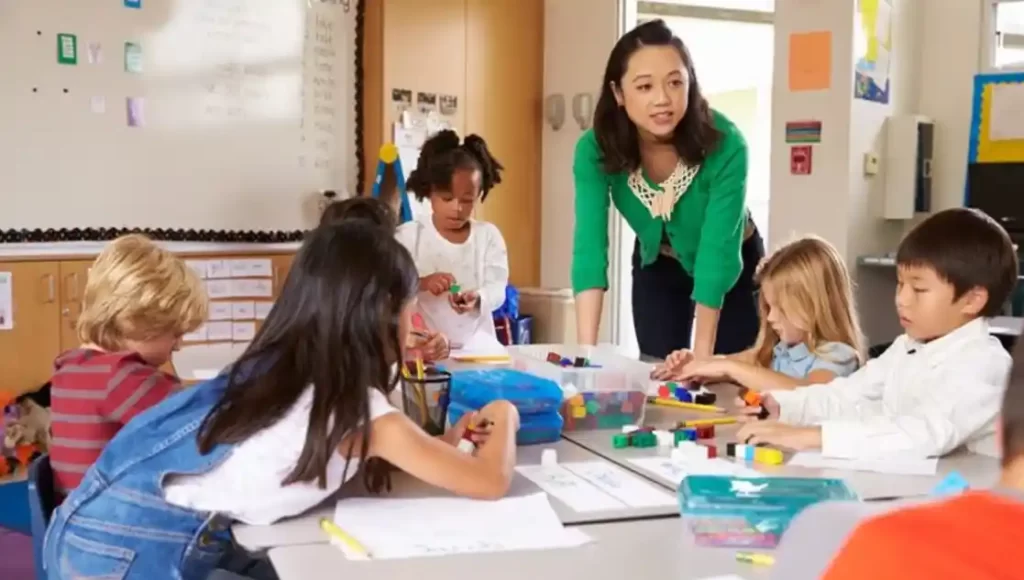
These help the students with special needs for integration into a general classroom.
Special education is needed because it can convert threats into opportunities, thereby making children learn something important. Academic excellence will be well taken care of these children, and further education or career will become easier for them.
Positive Impact of Special Education — Academic, Social & Emotional
The impact of special education extends beyond academics, influencing social interactions and emotional well-being. By fostering an inclusive and supportive environment, special education enables children to thrive in all aspects of life.

Positive Impact of Special Education — Academically
- Improves student learning through personalized instruction.
- Boosts confidence in tackling challenging subjects.
- The students have mastered more in literacy, numeracy, and problem-solving skills thus enhancing students’ achievements.
Positive Impact of Special Education — Socially
- Encourages collaboration and teamwork.
- Promotes inclusivity in peer interactions, reducing stigma.
Positive Impact of Special Education — Emotionally
- Helps to build confidence and self-esteem.
- Aids in the removal of anxiety as well as behavioral issues.
These sum up benefits support the importance of special education because such students, after being empowered, will become positive contributors to society.
How Many Stages of Support Are Available to Children with Special Educational Needs?
Children with special educational needs are provided a tiered approach for progress in overcoming the challenge as follows.
Levels of Support:
- Universal Support: Adaptations in mainstream classrooms, such as differentiated instruction.
- Targeted Support: Small group interventions focusing on specific skills.
- Specialized Support: One-on-one assistance with professionals like speech therapists or special educators.
Knowing how many stages of support are available to children with special educational needs can only ensure them getting the right interventions at the right time.
The tiered model ensures safety to all the students and provides equal opportunities for learning and growth.
Effects of Special Education on Students with Special Needs
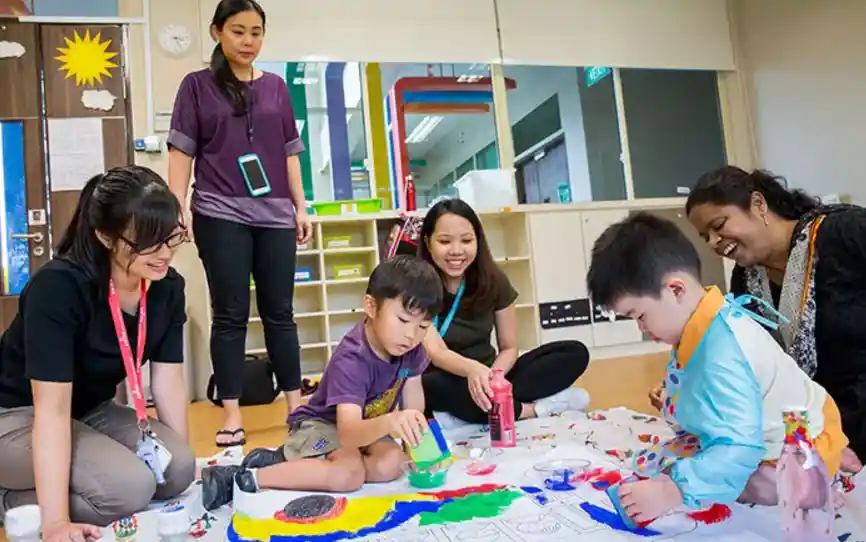
The impact of special education to students with disabilities is very deep, making them improve significantly in learning and growth.
Academic Effects:
- Bridges identified learning gaps and missing skills
- Prepares the students for further transitions in higher education or employment.
Social Impacts:
- Facilitates the development of meaningful peer relationships.
- Teaches essential social skills for integration into society.
Special education handles both academic and social issues and helps the children with disabilities to bring a sense of fulfillment in their lives as well as independence.
Challenges and Solutions in Implementing Special Education
Implementation of special education has its own problems, among other things. There is always a lack of resources for this, among other reasons. Furthermore, there is society’s misconception, and this will lead away from the implementation of any special education program because it is inefficient. Better proactive strategies as well as coordination among stakeholders will handle this better.
Common Challenges in Special Education
- Lack of Resources:
- Insufficient funding for schools to provide necessary tools like assistive technology.
- Limited availability of trained special educators.
- Stigma and Misconceptions:
- Misunderstandings about students with disabilities and their capabilities.
- Resistance to inclusive education for students with disabilities from parents or educators.
- Inconsistent Implementation:
- Variations in the quality of special education across schools and regions.
- Inadequate use of individualized education plans (IEPs) to address specific needs.
- Teacher Burnout:
- Managing diverse needs in a classroom can be overwhelming without proper support.
Effective Solutions
- Increased Funding: More money to fund the training and procurement of assistive technology.
- An awareness campaign: This creates an appreciation for the benefits of inclusive education for students with disabilities.
- Professional Development: Empowering professional teachers to deal with diversified classrooms.
- Collaboration: It would combine collaboration between parents, teachers and therapists to make the interactive setting around a learning space stronger.
Of course, the essence of importance of collaboration in inclusive education cannot be overemphasized. It is through working together only that barriers will fall and that special education can be guaranteed to benefit every child.
How Special Education Can Empower Struggling Students
The one of the primary impact of special education on students, that special education empowers those who were once backward in typical classrooms. The students are really confident with tailored methods of teaching and tools at their disposal.
- Personalized Learning: Assists the student in getting hold of concepts at his/her own pace.
- Development of Skills: Aims at preparing students to procure higher levels of education and employment.
- Inclusive Growth: Facilitates participation in wider social activities.
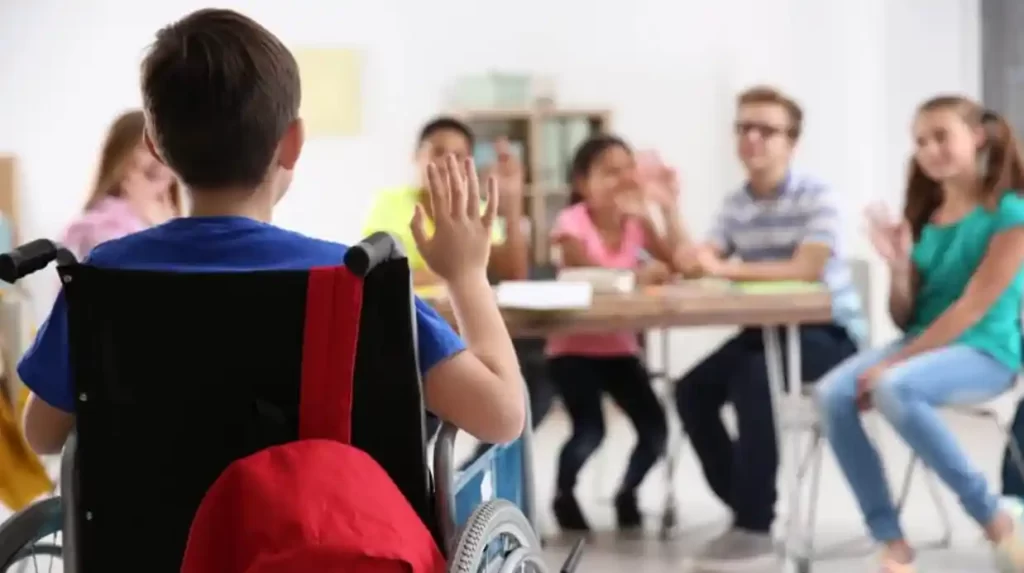
Different supports offered by special education schools have been strategic ways of building resilience in their students and making them learn to rely on themselves. Special education has the kind of importance it needs because it can make one reach full capacity, thereby proving that if a child is provided with the relevant guidance, they are bound to succeed.
What Makes Special Education an Important Element of the Basic Education Program?
Special education is needed because it facilitates equal participation for all children, either with disabilities or special educational needs, in learning opportunities. Special education does complement the education system in bridging gaps for children and in promoting inclusiveness.
Reasons Why Special Education is Essential
- Promotes Equity:
- Ensures that students with disabilities are not left behind in mainstream education.
- Fosters Independence:
- Encourages self-reliance through personalized support and skill development.
- Builds a Strong Foundation:
- Early childhood special education helps children achieve developmental milestones, setting them up for future success.
- Enhances Social Integration:
- Supports interaction with peers in both special and general education classrooms.
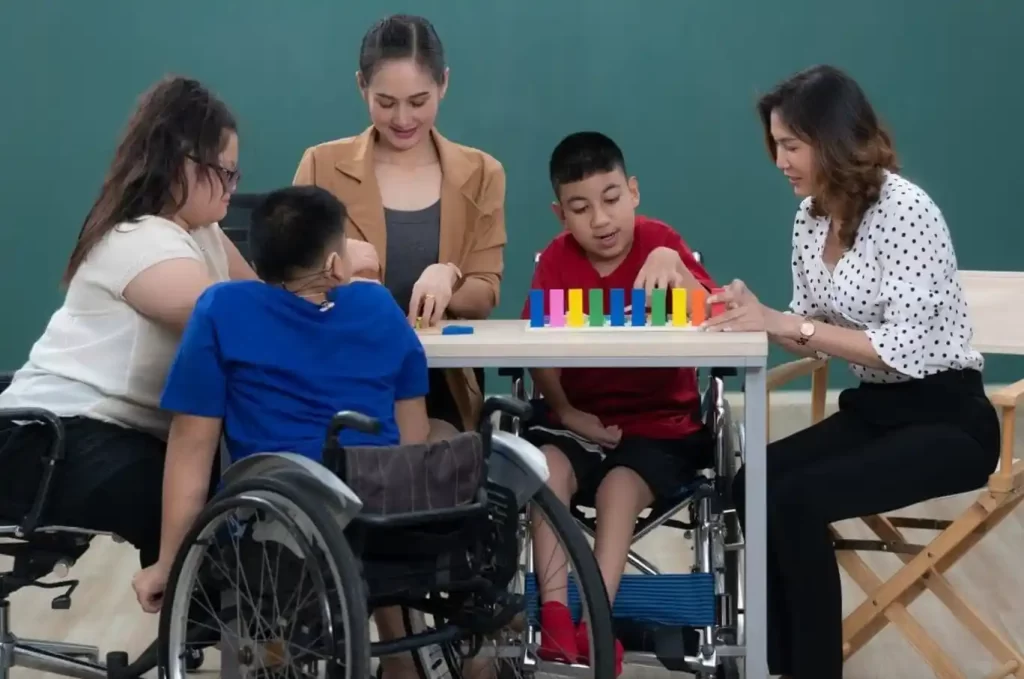
By addressing special educational needs and disability, special education plays a critical role in empowering students to lead fulfilling lives.
The role of assistive technology in education further enhances the accessibility and effectiveness of special education programs. This will then prepare the child for a good academic and personal life that would reveal the impact of special education and also the importance of assistive technology in special education.
No doubt, impact of special education is undeniable as it changes lives and brings opportunities to children with disabilities through the importance of assessment in special education. Continuous innovation, cooperation, and awareness will pave its way to special education and inclusive education and become an integral part of any educational institution and let its fruits be born for generations to come.
FAQs
Special education aims at making sure that the students with certain needs are given individualized support for academic achievement, as well as independence and equal access to education in an environment of inclusion.
The benefits of inclusive education for special needs students include a good relation, social skills improved, and students with disabilities learn along with their peers, leading to equity in the learning system.
Students with special needs can overcome learning barriers through assistive technology such as speech-to-text and visual aids, thus making special education more effective and accessible.
The most common type of disqualifying involving forms for an individualized education plan and to use compensation strategies is learning disabilities.

